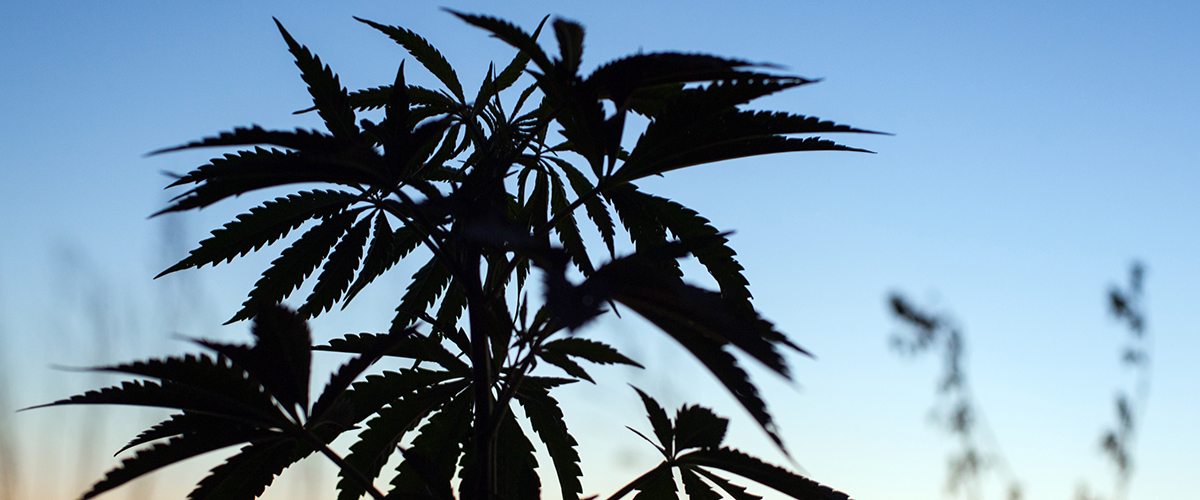[vc_row][vc_column][vc_column_text]
Three universities in Virginia are looking into the different uses for hemp, with eyes on turning the plant into a commercially viable crop.
Since Virginia legalized the cultivation of hemp for research purposes, three universities have signed on to study the versatile crop. Hemp research programs are currently underway at Virginia Tech, James Madison University, and Virginia State University.
Virginia has a long history with hemp, a variety of the Cannabis sativa L. plant species. In the colonial years, every farmer in Virginia was required to grow hemp, which was used to produce cordage and canvas. The environmentally sustainable crop, with more than 25,000 product applications, was even exchanged as legal tender. It wasn’t until the 1930s that hemp was made illegal in the U.S.
Since the passing of the federal Farm Bill in 2014, state lawmakers have had the opportunity the pass laws allowing universities and state departments of agriculture to begin cultivating hemp for limited purposes. Virginia is among over 30 states that have since implemented laws permitting the growing of hemp.
The Virginia General Assembly passed Senate Bill 691 to legalize hemp cultivation for research in 2015. Gov. Terry McAuliffe then signed the legislation into law March 2016. The law removes criminal penalties for growing hemp while licensed. Thanks to the change, last year the crop was grown and harvested in Virginia for the first time in over 70 years.
At Virginia Tech, one of the first universities in the state to apply for a permit, professors and graduate students are growing more than 18 different varieties of hemp in an effort to determine the best conditions and cultivation techniques for the renewable plant. Seeing value in hemp and its applications, they’re also investigating on how to turn hemp into a viable cash crop.
Among Virginia Tech’s plans are to research the production of hemp-enforced concrete and using hemp fibers in car parts. Hemp-enforced concrete, or hempcrete, is a mix of hemp hurd and lime that may be able to replace materials like steel rebar. Because hemp fibers are lighter than glass fibers, when used to make car parts they could improve a vehicle’s gas mileage.[/vc_column_text][/vc_column][/vc_row][vc_row][vc_column][vc_single_image image=”17298″ img_size=”1200×250″ onclick=”custom_link” img_link_target=”_blank” link=”https://www.medicalmarijuanainc.com/why-do-we-refer-to-hemp-as-industrial-hemp/”][/vc_column][/vc_row][vc_row][vc_column][vc_column_text]Further legislation could soon come to Virginia if Congress passes the Industrial Hemp Farming Act, which would distinguish hemp from marijuana and remove hemp from the list of substances banned under the Controlled Substances Act. The measure, re-introduced recently in the House of Representatives, would open the door for commercial production.
As federal law stands now, hemp products are legal to sell in the United States but hemp must be imported. With the U.S. retail hemp market worth $688 million and the hemp-based cannabidiol (CBD) market exploding, changing federal hemp policy to allow for commercial growing would open a substantial economic opportunity for domestic farmers.
“I’ve met many Virginia farmers who are ready to commercially produce and create a market for industrial hemp in the U.S., but outdated, though well-intentioned, federal restrictions on the cultivation and commercialization of this crop stand in the way,” said U.S. Rep. Bob Goodlatte (R-Roanoke County), co-sponsor of the federal hemp bill. “By removing industrial hemp from the definition of a controlled substances, the Industrial Hemp Farming Act will finally allow for responsible, commercial production of industrial hemp without fear of violating federal law.”
For hemp to be commercially viable to farmers in Virginia, the state’s three hemp-researching universities will need to first demonstrate that the crop will thrive and contribute to the state’s economy.
“Their proof of concepts and variety research trials help to move the hemp industry forward in Virginia, which in turn will result in new jobs for the Commonwealth,” said Jason Amatucci, the Virginia Industrial Hemp Coalition’s executive director.
The state of New York, recognizing hemp’s lucrative future, recently designated the crop as an agricultural commodity and ramped up its own production.
Learn more about hemp’s history in America and how it’s different from marijuana by visiting our education page.[/vc_column_text][/vc_column][/vc_row]






